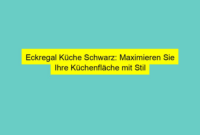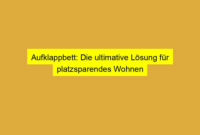Greetings Sanctuaryvf Friend!
Welcome to our journal article discussing the World Bank Open Data Wiki, a powerful platform that offers incredible potential for data analysis and research. In today’s digital age, access to reliable and up-to-date data plays a crucial role in various sectors, including economics, development, and policymaking. As the demand for data-driven decision-making grows, the World Bank Open Data Wiki emerges as an essential tool for researchers, analysts, and policymakers alike.
🌍💼📊
Introduction
In this digital era, data serves as a foundation for informed decision-making. The World Bank Open Data Wiki provides access to an extensive collection of datasets, reports, and visualizations from various sources such as government agencies, international organizations, and research institutions. Its user-friendly interface and comprehensive database make it a go-to platform.
The World Bank Open Data Wiki aims to improve access to crucial data, foster transparency, and promote evidence-based decision-making at all levels. By providing open and free access to data on economics, development, and demographics, it empowers researchers, practitioners, and policymakers to better understand global trends, compare economies, and formulate effective policies.
📚🔍✨
Strengths of the World Bank Open Data Wiki
1. Broad and Comprehensive Dataset: The World Bank Open Data Wiki boasts an extensive and diverse collection of datasets covering a wide range of topics, including poverty, health, education, infrastructure, and more. This breadth allows users to explore correlations, draw insights, and make informed decisions.
2. User-Friendly Interface: The platform’s intuitive interface simplifies the process of data retrieval and analysis. Users can easily navigate through the Wiki, conduct advanced searches, and access relevant data with just a few clicks. Its user-friendly design ensures that users of all levels, from beginners to experts, can derive value from the platform.
3. Visualizations and Charts: The World Bank Open Data Wiki offers a range of visualizations and charts that enhance data comprehension. By presenting complex information in a visually appealing manner, it promotes data-driven storytelling and understanding.
4. Open Access: One of the core strengths of the platform is its commitment to open access. By providing free and unrestricted access to data, the World Bank Open Data Wiki eliminates financial barriers and ensures that crucial information is available to all users, regardless of their location or resources.
5. Data Credibility: The World Bank, a reputable international financial institution, oversees the data collection process. This ensures that the data provided through the Wiki follows rigorous quality standards, enhancing its credibility and reliability.
6. Constant Updates: The World Bank Open Data Wiki regularly updates its dataset, ensuring the availability of the most recent and relevant information. Users can confidently rely on the platform for up-to-date data and avoid potential pitfalls associated with outdated sources.
7. Supportive Community: The World Bank Open Data Wiki fosters a vibrant community through forums, discussion boards, and collaborative spaces. This enables users to engage in knowledge-sharing, seek guidance from experts, and collaborate on research projects.
✅🔑💡
World Bank Open Data Wiki Information
Name |
World Bank Open Data Wiki |
|---|---|
Website |
data.worldbank.org |
Owners |
The World Bank Group |
Data Categories |
Economics, Development, Demographics, Environment, Health, Education, Infrastructure, and more. |
Accessibility |
Free and Open Access |
Data Sources |
Government Agencies, Research Institutions, International Organizations |
Frequently Asked Questions (FAQs)
1. How can I access the World Bank Open Data Wiki?
To access the World Bank Open Data Wiki, simply visit their official website at data.worldbank.org. From there, you can explore their vast dataset, conduct searches, and access relevant information.
2. Is the World Bank Open Data Wiki completely free to use?
Yes, the World Bank Open Data Wiki is entirely free and open to everyone. You can access and download data without any financial barriers.
3. Can I use the data from the World Bank Open Data Wiki for commercial purposes?
Yes, the World Bank Open Data Wiki allows users to utilize the data for commercial purposes. However, it is essential to comply with the platform’s terms and conditions and adequately attribute the World Bank as the data source.
4. Are there any restrictions on the usage of the World Bank Open Data Wiki?
The World Bank Open Data Wiki has minimal restrictions on data usage. However, it is crucial to respect copyright laws, provide proper attribution, and use the data responsibly and ethically.
5. Can I contribute to the World Bank Open Data Wiki?
Currently, the World Bank Open Data Wiki does not accept external contributions. However, you can engage with the platform’s community through forums and discussions.
6. How often is the data on the World Bank Open Data Wiki updated?
The World Bank Open Data Wiki maintains a regular update cycle to ensure users have access to the most recent data. However, the frequency of updates may vary depending on the specific dataset.
7. Can I request specific data that is not currently available on the World Bank Open Data Wiki?
While the World Bank Open Data Wiki aims to offer a comprehensive range of datasets, it may not cover every specific data point. However, you can explore other World Bank resources or contact them directly to inquire about the availability of specific data.
Conclusion
In conclusion, the World Bank Open Data Wiki is an invaluable resource for researchers, analysts, and policymakers seeking reliable and comprehensive data. With its extensive dataset, user-friendly interface, and commitment to open access, the platform empowers users to make data-driven decisions and contribute to evidence-based policymaking.
By leveraging the strengths of the World Bank Open Data Wiki and its supportive community, users can uncover insights, identify trends, and address pressing global challenges. Accessible to all, this platform holds the potential to drive positive change and promote sustainable development worldwide.
✨🔍🌍
Closing Words and Disclaimer
Dear readers, as you embark on your data-driven journey with the World Bank Open Data Wiki, we encourage you to utilize this powerful platform responsibly. While the data provided through the Wiki is meticulously curated and sourced, it is crucial to consider its limitations, potential biases, and the need for contextual analysis.
Remember, data is a tool that helps us navigate complex realities, but it is not a panacea. It is important to approach data analysis with a critical mindset, considering multiple perspectives and engaging in robust discussions.
We hope this article has shed light on the incredible potential of the World Bank Open Data Wiki and sparked your curiosity to explore the vast world of data-driven insights. Let us embark on this data journey together, striving for a more informed, equitable, and sustainable future.
🌍📊💡




